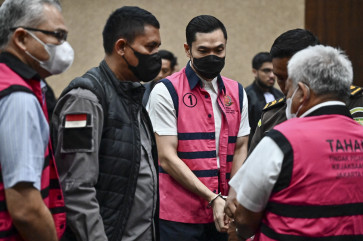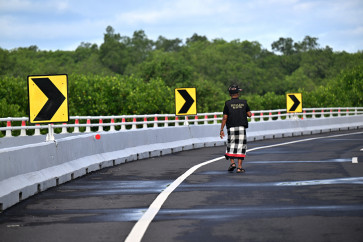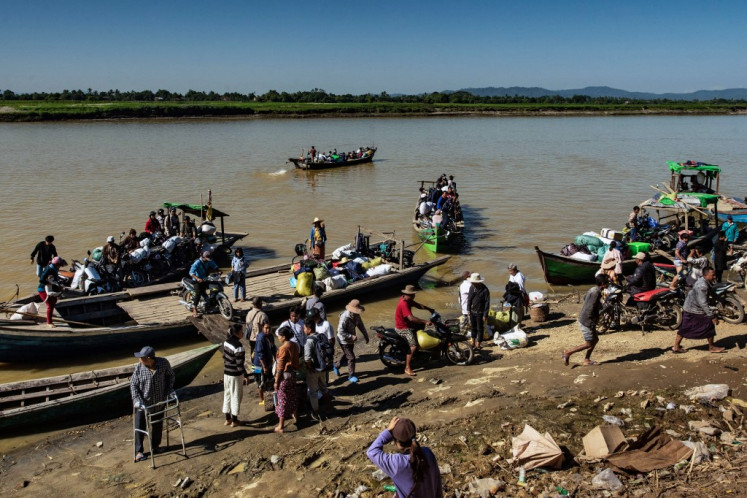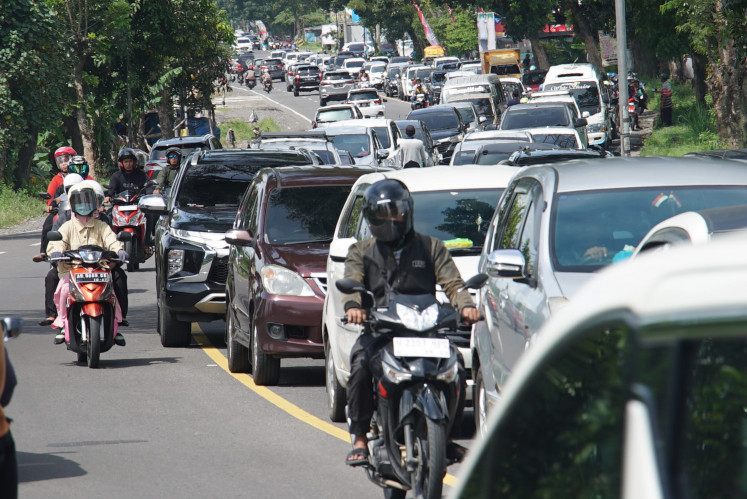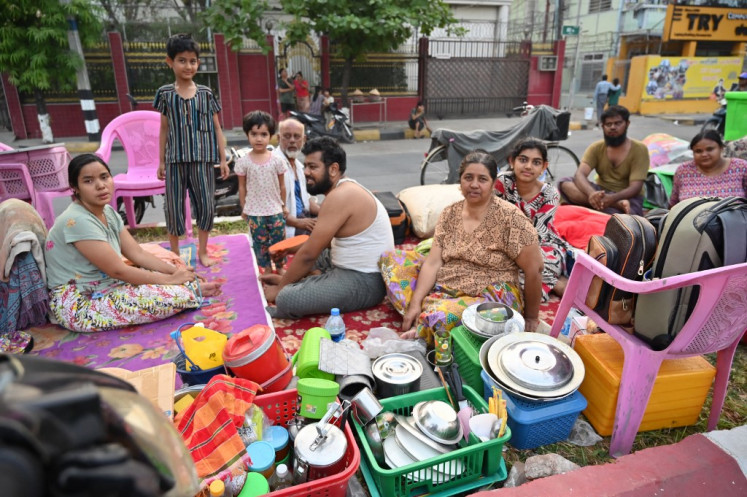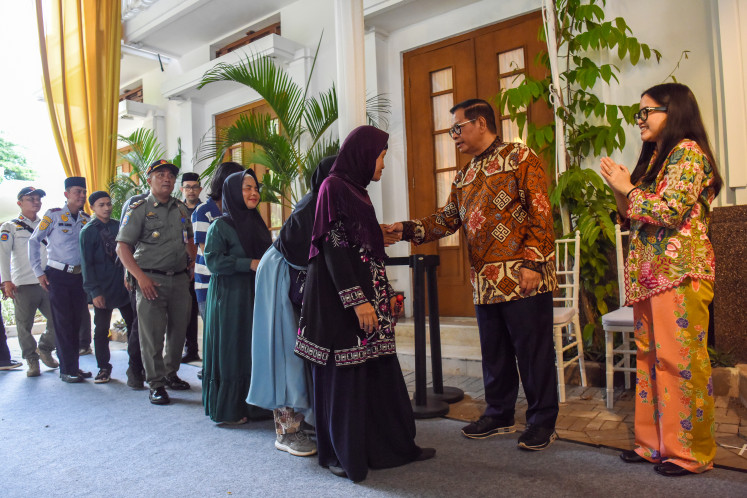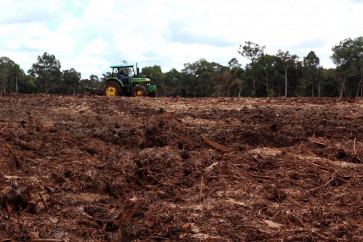Indonesia’s forests under the shadow of right-wing populism
Food production and forest conservation are not inherently at odds with each other, and the government must approach this critical juncture amid the global shift on climate change with innovative, alternative and sustainable agricultural solutions to fulfill the President's food security agenda.
Change text size
Gift Premium Articles
to Anyone
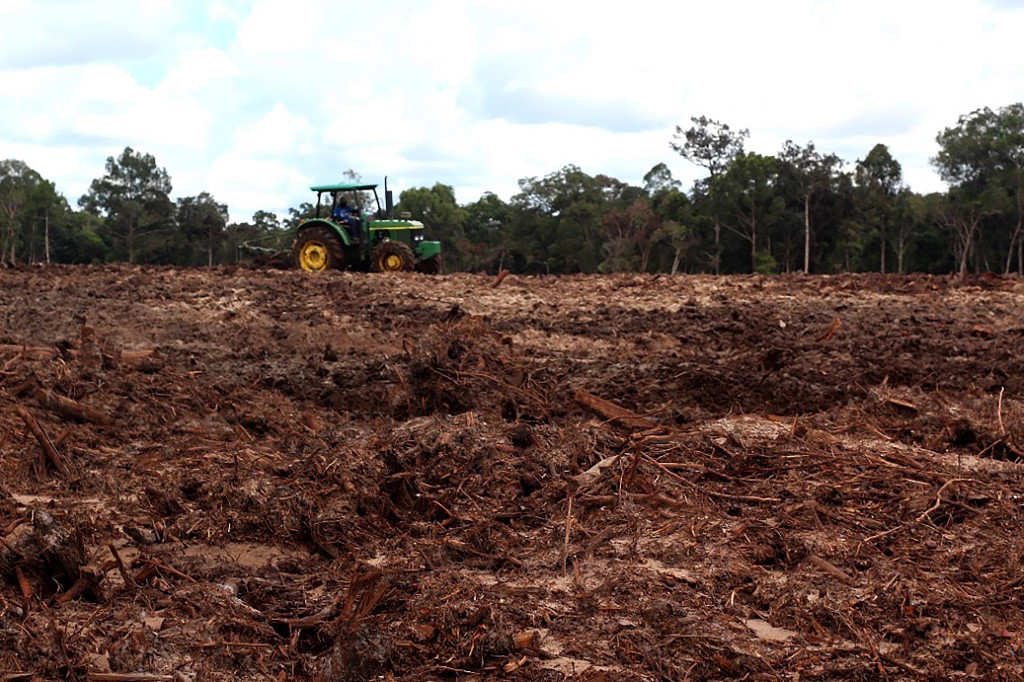 A tractor rolls across a muddy swath of denuded land on March 5, 2021, cleared for a food estate project in Gunung Mas regency, Central Kalimantan. (AFP/Galih)
A tractor rolls across a muddy swath of denuded land on March 5, 2021, cleared for a food estate project in Gunung Mas regency, Central Kalimantan. (AFP/Galih)
F
orests are more than mere landscapes of myth. They form essential ecosystems that support biodiversity and the livelihoods of millions. They produce oxygen, regulate the global climate and sustain communities that depend on their fertility.
Acknowledging their importance, international organizations have designated March 21 the International Day of Forests, a time to celebrate nature’s beauty and critique the environmental destruction driven by humans. This year’s theme, “Forests and Food”, highlights our global reliance on sustainable forests while revealing contradictions in policies that address deforestation and climate change.
Indonesia faces a critical moment in this context, as President Prabowo Subianto’s ambitious food security agenda raises concerns about the fate of the country’s remaining forests.
Prabowo has repeatedly stated that food self-sufficiency is a top national priority and pledged to expand domestic agricultural production. However, experts fear this ambition will come at a steep environmental cost.
The current administration has signaled support for large-scale food estate projects: expansive agricultural zones often established in forested areas. While these projects are justified as necessary for strengthening the country’s food security, history has shown that such policies frequently result in large-scale deforestation, biodiversity loss and displacement of indigenous communities.
According to the Forestry Ministry, forests cover 59 percent of land in Indonesia, which is home to 10 percent of the world’s remaining rainforests. Yet these forests are among the most vulnerable, threatened constantly by logging, oil palm expansion and infrastructure development. Under Prabowo, the government risks accelerating deforestation rather than addressing food scarcity effectively, especially if its food policies are not managed carefully.
A similar pattern has been observed in Brazil, where former president Jair Bolsonaro aggressively promoted agribusiness expansion in the Amazon. Under Bolsonaro’s leadership, deforestation in the Brazilian Amazon reached record highs as vast areas of rainforest were cleared to accommodate cattle ranches and soybean plantations for the country’s key agricultural exports.


